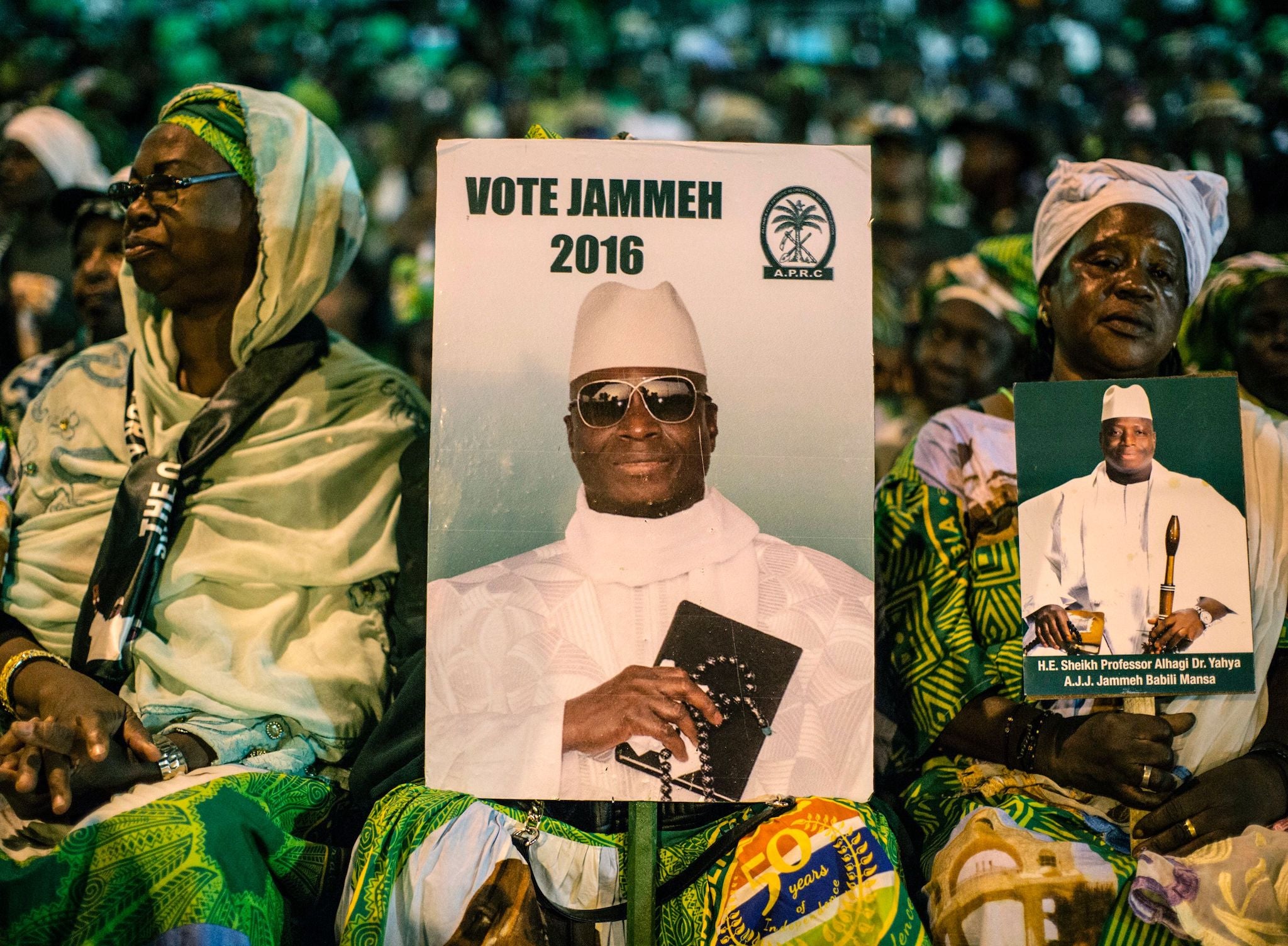Gambian President Yahya Jammeh declares state of emergency after election loss
Jammeh is refusing to step down despite international pressure

Your support helps us to tell the story
From reproductive rights to climate change to Big Tech, The Independent is on the ground when the story is developing. Whether it's investigating the financials of Elon Musk's pro-Trump PAC or producing our latest documentary, 'The A Word', which shines a light on the American women fighting for reproductive rights, we know how important it is to parse out the facts from the messaging.
At such a critical moment in US history, we need reporters on the ground. Your donation allows us to keep sending journalists to speak to both sides of the story.
The Independent is trusted by Americans across the entire political spectrum. And unlike many other quality news outlets, we choose not to lock Americans out of our reporting and analysis with paywalls. We believe quality journalism should be available to everyone, paid for by those who can afford it.
Your support makes all the difference.Gambia's President Yahya Jammeh declared a state of emergency on Tuesday, just two days before he is supposed to cede power after losing elections last month.
Jammeh is refusing to step down despite international pressure and the threat by other West African nations of a military intervention.
The 90-day state of emergency, announced on state television, was to begin immediately.
In the announcement, Jammeh also blamed what he calls the unprecedented level of foreign involvement in Gambia's election. The National Assembly, in approving the state of emergency, condemned the "unlawful and malicious interference" by the African Union's Peace and Security Council, which has said the continental body will no longer recognize Jammeh as Gambia's legitimate leader as of Thursday.
President-elect Adama Barrow, the man who ousted Jammeh in the December election, is vowing to take power on Thursday despite Jammeh's refusal to leave.
Jammeh says the country must wait for Gambia's supreme court to decide on the ruling party's challenge to the election results, a delay that could take months. On Monday, Gambia's chief justice recused himself and said he could not rule on Jammeh's request for an injunction blocking Barrow's inauguration.
Meanwhile, members of Jammeh's cabinet are fleeing. Gambia's foreign affairs minister, along with the ministers of finance, trade and environment, all have resigned, a political official in Banjul said Tuesday. The official spoke on condition of anonymity for fear of reprisals. The country's information minister earlier went into exile in Senegal.
Jammeh has ruled Gambia for more than 22 years. He initially went on state television to concede his election defeat, only to make a dramatic about-face a week later.
West Africa's regional bloc has a standby force for possible military intervention if Jammeh doesn't step down when his mandate ends this week. Gambia, a tiny nation of 1.9 million people, is estimated to have an army of just 900 troops.
Barrow is currently in Senegal, and the regional bloc, ECOWAS, has urged Barrow to stay there until Thursday's inauguration for his safety. On Monday, he was unable to attend the funeral for his 7-year-old son, who had been fatally mauled by a dog a day earlier.
AP
Join our commenting forum
Join thought-provoking conversations, follow other Independent readers and see their replies
Comments